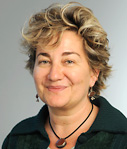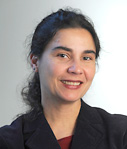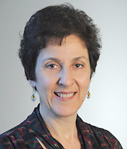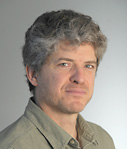








Babayan
Baptista
Hack
Kee
Lassiter
Leontis
Porter
Silver
Tang
The Institute for the Humanities has awarded fellowships to nine faculty and seven graduate students to support research projects they will pursue during 2011-12.
Faculty fellows
• Kathryn Babayan, associate professor, history and Near Eastern studies; Hunting Family Professor — “The Emergent Friend/Self in Epistolary Culture of Early Modern Isfahan”
This project investigates the diffusion of subjective forms of knowledge in early modern Isfahan, before print culture, through the circulation of friendship letters in manuscript albums. As the Safavi imperial state extended its control, Isfahan experienced shifts in the ways friendship and desire were socially practiced. Babayan sees transformations in both epistolary practices and in the practices of friendship as parts of a “civilizing process” where books on conduct were mobilized to regulate desire. It is through this critical link between civility, friendship and letter writing that she explores early modern subjectivities in Isfahan.
• Marlyse Baptista, professor, linguistics and Afroamerican and African studies; Hunting Family Professor — “The Founder Principle in Creole Genesis: Uncovering the Founding Populations and their Languages in Creole Formation”
This project examines the implications of the founder principle for the genesis of Creole languages. According to such principle, the grammatical properties of a given Creole language are in part those of the languages spoken by the original populations that contributed to its genesis. The ultimate objective of this project is to uncover traces of the founding European (Judeo-Spanish) and African languages (Wolof and Mandinga) that left a lasting imprint on the grammatical structure of specific Creole languages.
• Daniel Hack, associate professor, English; John Rich Professor — “The African Americanization of Victorian Literature”
This book recovers a rich history of African-American engagement with 19th-century British poetry and fiction, from the antebellum period through the early decades of the 20th century. Hack argues that this history challenges existing understandings of both canonical Victorian literature and the African-American literary tradition, and he considers its lessons for the study of cultural dissemination and appropriation more generally.
• Joan Kee, assistant professor, history of art; Helmut F. Stern Professor — “What Art Has to Say about the Law”
The complex relationship between visual art and politics is vividly denoted through how art engages with its forms of regulation, namely, the law. This is particularly so in the United States, where sweeping changes in society from the 1960s to the present radically affected legal approaches to ideas of property, contract, equality, privacy, identity and enforcement. “What Art Has to Say about the Law” explores how contemporary art responds and, in some cases, plays a role in these ideas.
• Matt Lassiter, associate professor, history and architecture and urban planning; John Rich Professor — “The Suburban Crisis: The Pursuit and Defense of the American Dream”
This project explores the transformation of American suburbia from World War II through the end of the 20th century by connecting the areas of politics, popular culture and public policy. The utopian mythology of the “American Dream” exists in a state of perpetual crisis, from battles over racial and class integration, to anxieties over delinquent youth and “family values,” to moral crusades for wars on crime and drugs, to the environmental critique of sprawl. The book traces the effects of grassroots suburban politics on patterns of metropolitan development and the evolution of national policies.
• Artemis Leontis, associate professor, classical studies and modern Greek; Hunting Family Professor — “Greek in the Flesh: The Alternative Archaeologies of Eva Palmer Sikelianos”
Leontis will complete “Greek in the Flesh: The Alternative Archaeologies of Eva Palmer Sikelianos,” a book-length cultural biography on the most influential western visitor to Greece after Lord Byron. A wealthy New York heiress and cosmopolitan visionary, Palmer spent all her money reviving the Delphic Festivals in the ancient site of Delphi during 1927 and 1930. This manuscript uses Palmer’s creative reconstructions of Greek weaving, dress, dance, music and tragedy to uncover entanglements between archaeology, women, sexuality, modernism and Greece during the first half of the 20th century.
• David Porter, professor, English; Helmut F. Stern Professor — “English Literature of the early Qing Dynasty: A Study in Historical Cosmopolitanism”
Porter will be working on a comparative study of the literary cultures of China and England in the 18th and 19th centuries. Exploring the striking convergences that appear between these seemingly distant contexts promises to cast new light on developments once thought to be unique to Europe and to complicate, from a Eurasian perspective, familiar cultural histories of early modernity.
• Sean Silver, assistant professor, English; Helmut F. Stern Professor — “Imagining Things: A Material History of the Eighteenth-Century Mind”
This project suggests that the history of collecting practices in 18th-century Britain directly influenced developments in contemporary imagination theory — developments, which in many cases remain in place today. When John Locke — philosopher and bibliophile — insists that “the mind … is a cabinet,” he refers, Silver argues, to his own cabinet collection of books. Rockhound Alexander Pope similarly alluded to his grotto, curator Robert Hooke to his “repository” and so on. This project therefore offers a new history of the 18th-century mind as the material history of its metaphorical models.
• Xiaobing Tang, professor, Asian languages and comparative literature; Steelcase Professor — “Scenes and Visions: Contemporary Chinese Visual Culture”
Tang’s project will be a study of shifts in artistic or cinematic visions that in contemporary China foreground emerging structures of visibility. He will place current developments in their historical contexts and examine key concepts such as experimentation, the avant-garde and representation.
Graduate fellows
• Efrat Bloom, comparative literature; Marc and Constance Jacobson Graduate Student Fellow — “Writing and Dislocation: The Poetics of the Mother Tongue”
The dissertation examines the attempts of three 20th-century displaced poets to establish in writing the threads of continuity to a “place of origin” through which the viability and meaningfulness of the literary enterprise can be reassured. Bloom’s reading shows how the desire for the “origin” inflects and undermines writing, and how the recognition of the origin’s inaccessibility evolves into a new understanding of writing, its limitations and its contingencies.






Finn
Gardiner
Gul
Hillewaert
Kamal
Sympson
• Jennifer Finn, Greek and Roman history; Mary I. and David D. Hunting Graduate Student Fellow — “Shaping Kings: Mesopotamian Kingship in the Age of Alexander”
Studies of Alexander the Great traditionally have viewed him through the lens of western sources, deaf to the voices of his millions of Near Eastern subjects. Finn’s work makes use of both Near Eastern and Greco-Roman material (literary as well as archaeological and art historical) and anthropological models for the creation of meaning between cultures. The result is an argument that Alexander’s appreciation of pre-existing kingship models in both Greece and the Near East provided a paradigm for the manipulation of his own unique multinational, mytho-historical kingship.
• Noah Gardiner, Near Eastern studies; Mary Fair Croushore Graduate Student Fellow — “Tracing the Corpus Bunianum: Sufism, Books, and the Occult Science of Letters in Late Medieval and Early Modern Periods”
The controversial 13th-century Sufi Ahmad al-Buni wrote a number of works on the occult science of letters (‘ilm al-huruf), an esoteric Islamic discourse on the role of the letters of the Arabic alphabet and the names of God in the creation and sustenance of the cosmos. Working from the texts and paratexts of hundreds of surviving manuscripts from the 13th through 16th centuries, this dissertation traces the transmission and reception of al-Buni’s works as they circulated between esoteric Sufi groups, professional magical practitioners, and the courts and elite households of the Mamluks and Ottomans.
• Recep Gul, music composition; James A. Winn Graduate Student Fellow — “Mübadele/ Ανταλλαγη: Remembering a Human Catastrophe through Music”
Gul’s dissertation project is a chamber oratorio for small orchestra and singers based on the 1923 Greco-Turkish compulsory religious population exchange that forced one million Orthodox Christians to leave their homes in Turkey and emigrate to Greece, in exchange for half a million Muslims emigrating from Greece to Turkey. Utilizing life stories of the exchanged people as well as folk poetry and folk music as texts, this new musical work seeks to re-imagine past events by using the individual and collective experiences of the time in a contemporary classical music setting.
• Sarah Hillewaert, anthropology and Afroamerican and African studies; Sylvia “Duffy” Engle Graduate Student Fellow — “Between the Expected, the Respected and the Desired: Renegotiating Identities in an East African Muslim Town.”
Hillewaert’s dissertation focuses on the struggles of Muslim youth in Lamu (Kenya) to find a balance between respect for religious ethics, expectations of cultural mores, and the economic pressure or desire to participate in global culture. Analyzing shifts in language use and daily behavior, she demonstrates how linguistic and semiotic practices can mediate the formation of social groups and relations in contexts of rapid change.
• Amr Kamal, comparative literature; Mary Fair Croushore Graduate Student Fellow — “Out of Place: Tales Inside and Outside Department Stores”
Kamal’s project examines the role of 19th-century department stores as a retail network that shaped French and Egyptian national identity, and Mediterranean culture at large. In particular, it highlights how the department store became a strategic literary symbol for the rewriting of French and Egyptian history and for negotiating the writers’ position within their society, amid the competition between the British, French and Ottoman empires.
• Melanie Sympson, history of art; Mary I. and David D. Hunting Graduate Student Fellow — “Strategies of Representation and Artistic Experimentation in Manuscripts of the Roman de la rose”
Sympson’s dissertation revisits the contexts and purposes of medieval visual innovation through an examination of manuscripts of the Roman de la rose, the most popular romance of the later middle ages. Striking differences in both the quantity and the quality of illustration suggest that artists thoughtfully met the challenge of giving pictorial form to the dream narrative, in anticipation of satisfying a variety of audiences. By situating an analysis of these manuscripts, Sympson hopes to elucidate some of the reasons behind profound changes in representational strategies that characterized the visual arts in this period.

